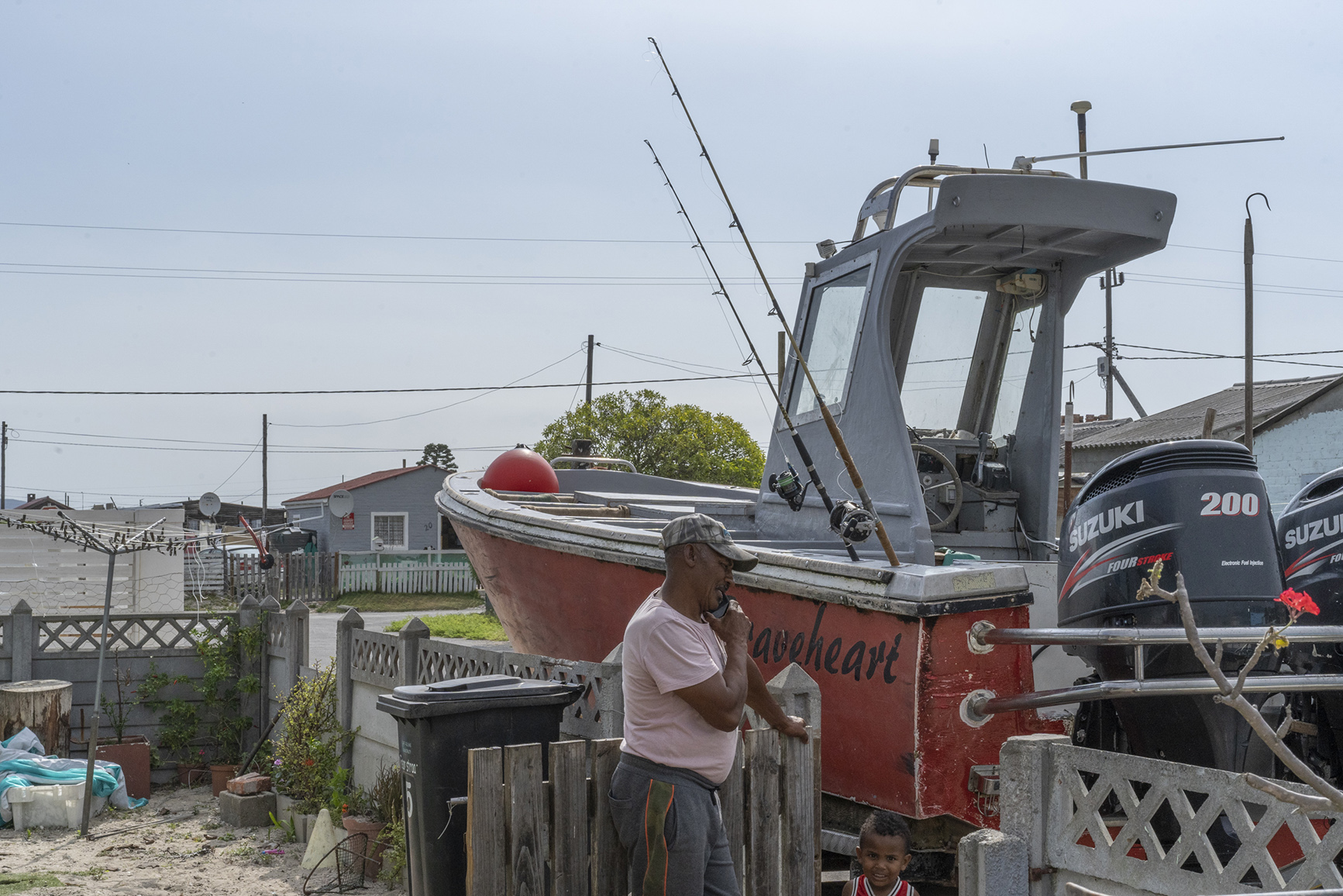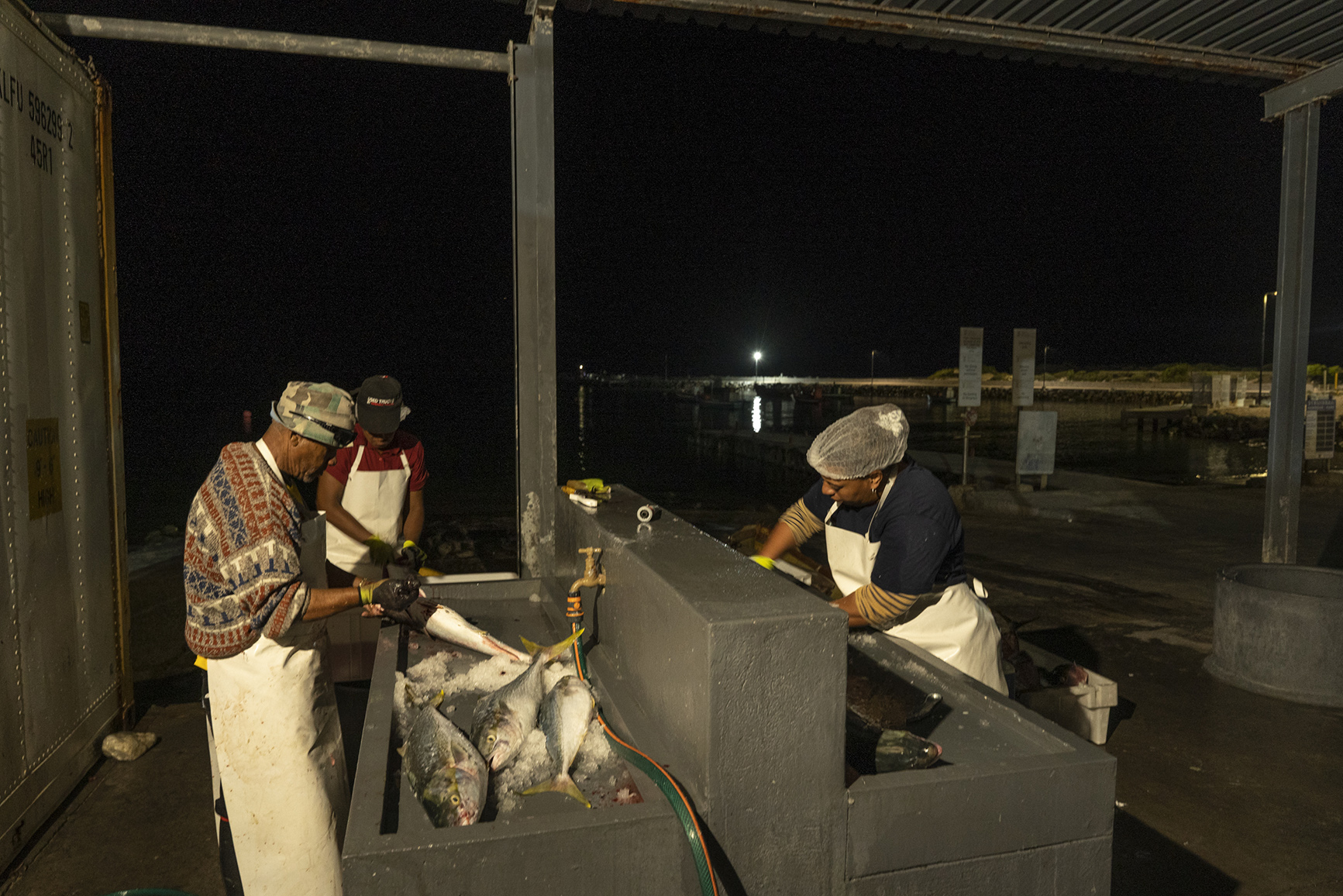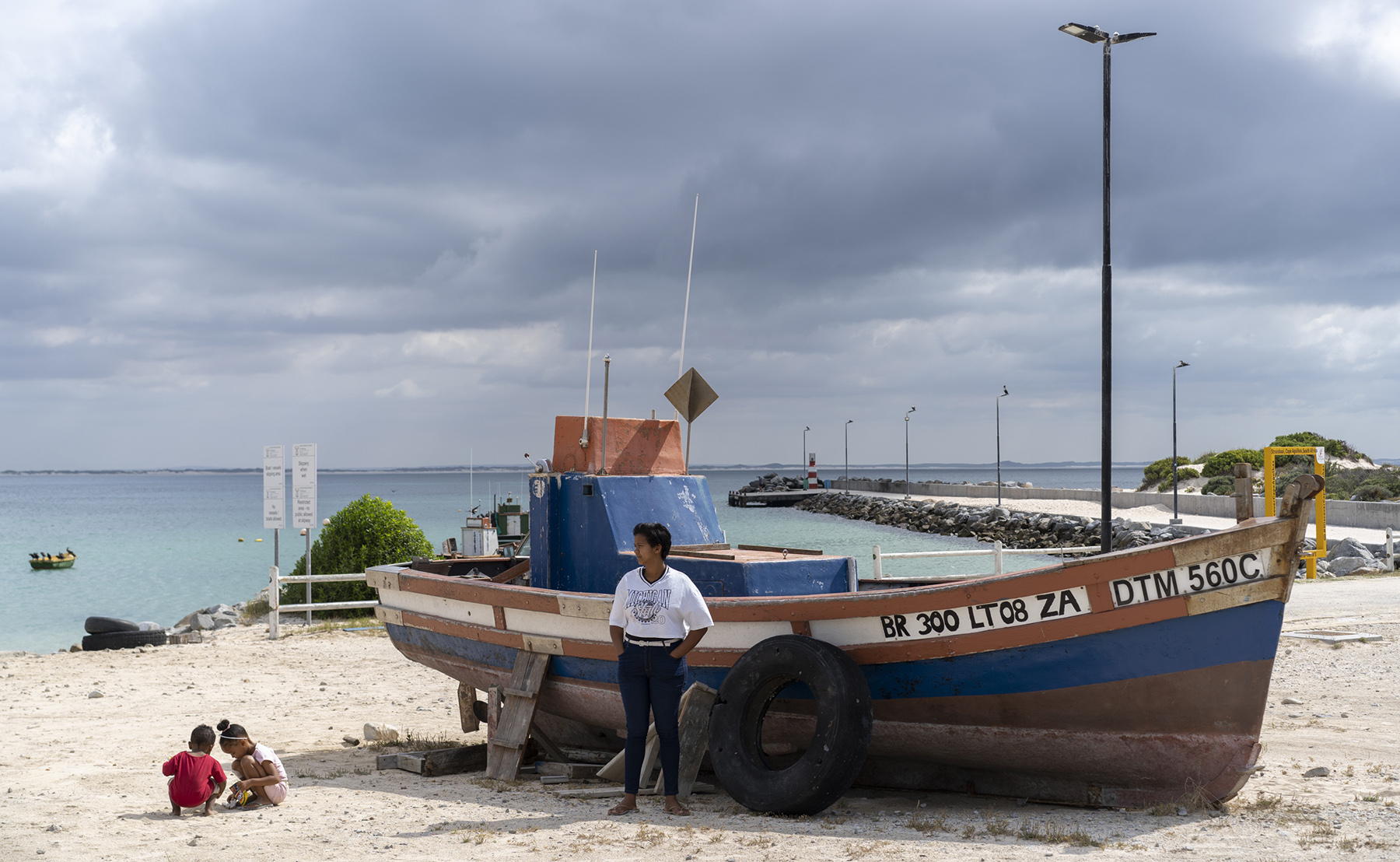At 5am in the cold, fishermen gathered at the Struisbaai harbour, less than 10km from the southernmost tip of Africa. In the water, lights created a green glow around moving boats as they went off to the Agulhas banks in search of yellowtail. The diesel engine in Martinus “Oom T” Newman’s traditional fishing boat, called a chukkie, chugged away as he skilfully moved the wooden plank attached to the rudder this way and that with his feet, navigating the oncoming swells as we headed out to sea, leaving the harbour lights behind.
“I have an immense sentimental attachment to the sea. My father and grandfather both [loved] the sea. Sea water ran through their veins. In 1975 I started going to sea. It’s the most amazing feeling, even though you don’t make millions of rands. It’s about the love and satisfaction that comes from fishing”, says Newman.
At the age of 65 Newman is still going strong. “Weltevrede,” the boat his father commissioned to be built and then piloted from Stomneusbaai harbour on the West Coast on a 400km journey to Struisbaai, now belongs to him. His father, now in his eighties, stopped fishing just over a year ago. Newman has since passed the fishing bug onto his youngest son, Jr, who skippers a newer ski-boat.
Emily, Newman’s wife, is also a fisher. She works at Abalobi, a company that supports fisher livelihoods through selling high-value catches to restaurants and private buyers, doing quality assurance. “If the fishers don’t go to sea, we can’t work”, she says.
As TotalEnergies was given authorisation to drill exploratory wells in Block 5/6/7 off the coast between Cape Point and Cape Agulhas, Newman says: “The changes in the fish patterns as a result of global warming is a big concern for us because our only source of income is the sea.”
Read more in Daily Maverick: Legal battle brews over TotalEnergies’ offshore oil and gas drilling in Western Cape
While all fishers are affected by the adverse weather, chukkie skippers are under further pressure because lately yellowtail has seemed to move further away from the Struisbaai harbour, making the journey untenable for the comparatively slow-moving boats.
However, the increasing pressure does little to dampen their relationship with the sea. Along with livelihoods, the sea is also the source of intergenerational identity for Newman and other Struisbaai fishers like him. Identities that they inherited from their parents and passed on to their children. DM
This work was supported by the Pulitzer Center. Daily Maverick will publish a series of four photo essays this week. This is part three.
Read Part 1: Coastal communities on the frontline of the climate crisis — Dwesa-Cwebe in Hobeni, Eastern Cape
Read Part 2: Coastal communities on the frontline of the climate crisis — Hondeklip Bay, Northern Cape
 04 February 2024. Fishing boats leave the Struisbaai harbour before 5am. (Photo: Barry Christianson)
04 February 2024. Fishing boats leave the Struisbaai harbour before 5am. (Photo: Barry Christianson)
 04 February 2024. Crewmen on Oom T’s boat joke around as they head back to the harbour. Chukkies are the traditional fishing vessels that are large enough to accomodate 10 crewmen, making them an important source of income in the community. Their engines tend to be less powerful than their newer ski-boat counterparts. Their larger size also makes them less agile in the water. This leaves experienced skippers such as Oom T with a strong sense of pride. (Photo: Barry Christianson)
04 February 2024. Crewmen on Oom T’s boat joke around as they head back to the harbour. Chukkies are the traditional fishing vessels that are large enough to accomodate 10 crewmen, making them an important source of income in the community. Their engines tend to be less powerful than their newer ski-boat counterparts. Their larger size also makes them less agile in the water. This leaves experienced skippers such as Oom T with a strong sense of pride. (Photo: Barry Christianson)
 04 February 2024. Emily Newman, Oom T’s wife, and their daughter Em work at the Abalobi factory in Struisbaai. Mimmie has been fishing all her life as well, preferring rivers to the open sea. (Photo: Barry Christianson)
04 February 2024. Emily Newman, Oom T’s wife, and their daughter Em work at the Abalobi factory in Struisbaai. Mimmie has been fishing all her life as well, preferring rivers to the open sea. (Photo: Barry Christianson)
 05 February 2024. Chukkies lay anchored in the Struisbaai harbour. A source of pride for the community, pictures of the boats can be seen all over the little town. (Photo: Barry Christianson)
05 February 2024. Chukkies lay anchored in the Struisbaai harbour. A source of pride for the community, pictures of the boats can be seen all over the little town. (Photo: Barry Christianson)
 05 February 2024. Martinus Newman’s father, Adriaan van der Berg, known by his nickname Serani, has been a fisher all his life. Now at 82 years of age, he stopped fishing this year as his legs aren’t as good as they used to be. He misses fishing every day, but gets a lot of joy out of going to the harbour and watching the boats. (Photo: Barry Christianson)
05 February 2024. Martinus Newman’s father, Adriaan van der Berg, known by his nickname Serani, has been a fisher all his life. Now at 82 years of age, he stopped fishing this year as his legs aren’t as good as they used to be. He misses fishing every day, but gets a lot of joy out of going to the harbour and watching the boats. (Photo: Barry Christianson)
 05 February 2024. Martinus Newman catching octopus for use as bait. (Photo: Barry Christianson)
05 February 2024. Martinus Newman catching octopus for use as bait. (Photo: Barry Christianson)
 05 February 2024. Martinus Newman’s son Jr is a fisher as well. While not at sea, his boat Braveheart is invariably parked in front of their home. (Photo: Barry Christianson)
05 February 2024. Martinus Newman’s son Jr is a fisher as well. While not at sea, his boat Braveheart is invariably parked in front of their home. (Photo: Barry Christianson)
 05 February 2024. From left: Hendrik Martinus, Cliveen van der Berg, and Alvina Gabriels process yellowtail at the Struisbaai harbour in the evening. (Photo: Barry Christianson)
05 February 2024. From left: Hendrik Martinus, Cliveen van der Berg, and Alvina Gabriels process yellowtail at the Struisbaai harbour in the evening. (Photo: Barry Christianson)
 05 February 2024. Emily Newman fries yellowtail fillets for dinner. (Photo: Barry Christianson)
05 February 2024. Emily Newman fries yellowtail fillets for dinner. (Photo: Barry Christianson)
 05 February 2024. Martinus Newman and his son Jr debrief after a long day of fishing and catching octopus. (Photo: Barry Christianson)
05 February 2024. Martinus Newman and his son Jr debrief after a long day of fishing and catching octopus. (Photo: Barry Christianson)




 05 February 2024. Martinus Newman and his son Jr debrief after a long day of fishing and catching octopus. (Photo: Barry Christianson) FOR ONCE OFF USE ONLY
05 February 2024. Martinus Newman and his son Jr debrief after a long day of fishing and catching octopus. (Photo: Barry Christianson) FOR ONCE OFF USE ONLY 